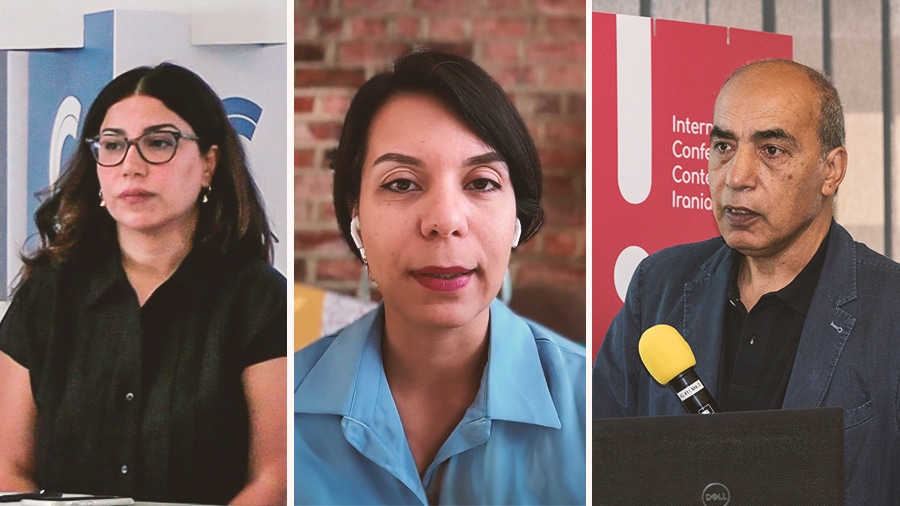Elham Ghafarzadeh
The Role of the “Appendix” Campaign in the Fight Against Gender Discrimination in Iranian Textbooks: An Analysis of its Activities and Effects in Cyberspace
Saeed Paivandi
Can We Talk About the Existence of Gender Ideology in Iranian Textbooks?
Maryam Mirza
Promoting Gender Equality Outside of Iran for Inside the Country
Moderator: Maryam Mirza
Following introductory remarks by Maryam Mirza, Elham Ghafarzadeh analyzes the “Appendix” (Zamimeh) campaign’s impact, emphasizing its role in raising public awareness about gender bias in education. Established in 2021, Zamimeh is the first campaign in Iran to systematically address textbook-based gender discrimination.
The initiative’s core mission is to ensure equal access to unbiased education for all students. Ghafarzadeh’s study highlights the campaign’s extensive activities on social media, with over 300 posts aimed at exposing gender stereotypes and promoting gender equality. Zamimeh’s content includes series on mental health for children, stories that challenge gender stereotypes, and profiles of prominent Iranian women who have succeeded in traditionally male-dominated fields.
The campaign also addresses masculinity, focusing on raising sons with feminist values to counteract toxic masculinity. Through partnerships with organizations like IranWire, Zamimeh has expanded its audience and increased its influence.
The campaign has hosted weekly live discussions with activists and experts to engage directly with the community. Zamimeh’s digital outreach also includes podcasts featuring audience experiences related to gender-based issues like toxic masculinity and gendered social expectations.
To further support educators and parents, the campaign has published over 30 educational booklets that offer guidance on addressing gender issues. By combining social media outreach, live discussions, and published resources, Zamimeh strives to create a dialogue-based space for understanding and tackling gender inequality in Iran’s educational system.
Saeed Paivandi’s research on gender ideology in Iranian textbooks reveals significant gender disparities within Iran’s formal education system. By analyzing 41 primary school textbooks from the 2021–2022 academic year, Paivandi examines 2,701 images and 483 lesson units.
His findings suggest that gender inequality is deeply ingrained within Iranian curricula, following the Islamic Republic’s educational reforms initiated in 2012. Paivandi categorizes content into seven domains where gender biases are prominent, such as gender representation in public and private spaces, family dynamics, employment, famous personalities, and dress codes.
His research highlights the persistence of stereotypical portrayals and concludes that these representations likely function as a form of gender ideology, reinforcing patriarchal norms.
Maryam Mirza’s study addresses gender advocacy from outside Iran, specifically examining the “Zamimeh” campaign, which seeks to eliminate gender bias in Iranian textbooks. She explores the effectiveness of diaspora-led activism in impacting social issues within Iran, where political risks for such advocacy are high.
Mirza raises several critical questions about external advocacy’s influence and its credibility, especially under scrutiny from Iranian state-backed “cyber armies” and critics who argue that these initiatives serve as “funding hubs” without true impact. Her work assesses how digital security threats, online smear campaigns, and censorship complicate the work of activists.
Mirza highlights the need for effective advocacy that connects with those affected by inequality in Iran, stressing the importance of adaptable strategies that align with both the needs of Iranian activists and the evolving sociopolitical climate.


